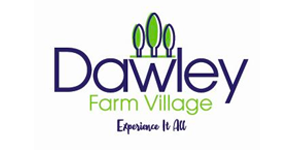Self-care, mindfulness benefit whole family
This paid piece is sponsored by Sanford Health.
As a parent, your job is stressful. Do you feel rushed for time to get children fed, dressed and out the door? When your child is “acting up,” how do you remain calm? Is it easier to be patient some days more than others? Taking time to fill your own cup helps you cope with the challenges that come along with parenting.

Children can feel when parents are tense and overwhelmed. Does your child’s behavior get worse or better when you are in a stressful state? Being a responsive or mindful parent means learning to manage your own stress. Mindfulness helps you become a source of stability and security for your child’s storms.
Taking care of yourself benefits everyone
Finding ways to nurture yourself, calm down and respond patiently and kindly helps not only you but also your child. Your child will respond to your calmness by thinking: “OK, I can trust my parent to be in control. This is a safe environment.” Children who feel safe develop better. They are more curious and willing to explore.
One of the biggest gifts you can give your child is a safe, calm, nurturing, responsive and secure relationship. Your child needs this to thrive. When you feel better, your child feels better.
What are some new ideas to try to reduce your stress?
- Develop your own nurturing self-care routine: breathe, bathe, nourish, move and sleep.
- Reach out to a friend because talking helps.
- Sprinkle self-care throughout your day.
Top five tips to stay mindful as a parent
- Really listen. It’s easy to let the focus stay on our own goals when interacting with our children. Instead, focus on what your child is really trying to say. Pay full attention to verbal and other cues.
- Accept yourself and your child’s feelings. Acknowledgment of all feelings, even the negative ones, is crucial. If you can accept a feeling without being overwhelmed by it, you can respond with patience, rather than react out of frustration and anger.
- Show empathy. Imagine how your child might be feeling during a difficult moment. If your child is upset, how can you respond in ways that acknowledge he or she is upset but also show love and limits?
- Pause and breathe. How do you manage your own feelings and reactions in the midst of a baby’s crying or a toddler’s defiance? The first thing to do is nothing! Pause for a moment, and take a few deep breaths. This helps calm the body and clear the mind.
- Show compassion. Instead of judging and blaming ourselves or our child, we should realize that everyone struggles, and these feelings are normal. Self-compassion means recognizing that parenting is a process of learning what works and what doesn’t. Be kind to yourself.
Remember, being present with yourself and your self-care needs is just as important as meeting the needs of your child. Mindfulness helps us to create a calm, safe, responsive, nurturing and secure relationship. This is the key foundation to early learning and success. Mindfulness matters.
For information, call 605-328-7155 or consider attending Responsive Parenting classes in your area.
Share This Story
Most Recent
Videos
Want to stay connected to where you live with more stories like this?
Adopt a free virtual “pigeon” to deliver news that will matter to you.





























